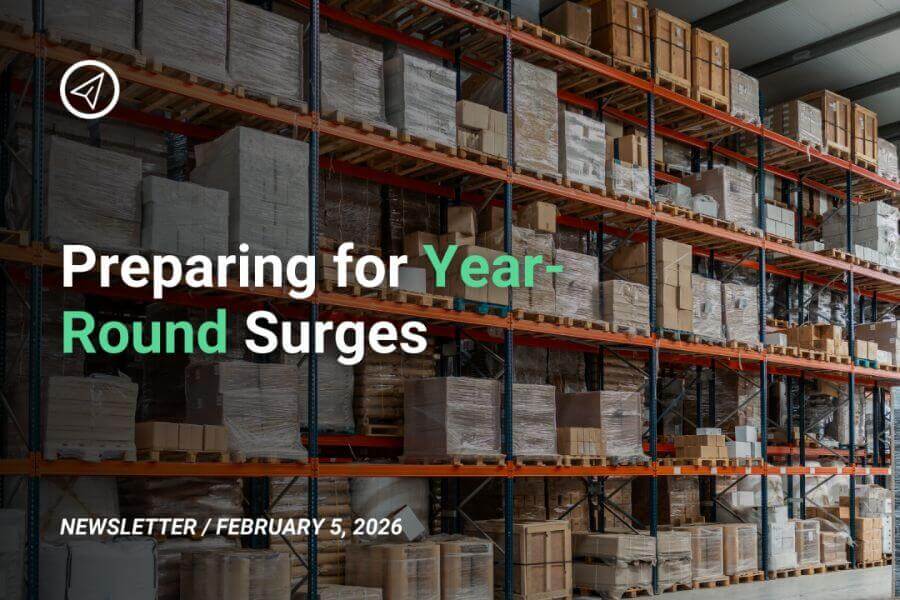>>> Read newsletter on LinkedIn <<<
As the ecommerce landscape continues to evolve rapidly, businesses must adapt their supply chain strategies to meet changing consumer demands and technological advancements. The year 2025 presents new challenges and opportunities for ecommerce operations, necessitating a fresh approach to supply chain management.
1. Embrace AI and Machine Learning
Overview. Artificial intelligence (AI) and machine learning (ML) are revolutionizing supply chain management by forecasting demand, optimizing routes, and automating inventory management.
Benefits. these technologies can predict consumer purchasing patterns, optimize stock levels, and reduce delivery times.
Implementation tips. invest in AI-driven analytics tools that integrate with your existing supply chain management software to enhance data-driven decision-making.
2. Implement advanced data analytics
Overview. advanced data analytics provide deep insights into every aspect of the supply chain, from procurement to customer delivery.
Benefits. by analyzing data in real time, businesses can identify bottlenecks, forecast market changes, and enhance operational efficiency.
Implementation tips. utilize cloud-based analytics platforms that offer scalability and real-time processing capabilities to handle large datasets effectively.
3. Strengthen supplier relationships
Overview. building strong relationships with suppliers is crucial for ensuring the reliability and resilience of your supply chain.
Benefits. strong partnerships ensure better pricing, priority access to goods, and improved quality of products.
Implementation tips. regularly communicate with suppliers, use collaborative tools for better integration, and consider multi-sourcing strategies to mitigate risks.
4. Focus on sustainability
Overview. sustainability is becoming a critical factor in consumer decisions. Ecommerce businesses need to adopt eco-friendly practices across their supply chain.
Benefits. sustainable practices can reduce costs, improve brand loyalty, and comply with regulatory standards.
Implementation tips. opt for green packaging, streamline logistics to reduce carbon emissions, and work with suppliers who prioritize sustainability.
5. Leverage blockchain technology
Overview. blockchain offers a secure and transparent way to document transactions within the supply chain.
Benefits. it ensures the authenticity of goods, enhances traceability, and builds trust with consumers.
Implementation tips. start with pilot projects focusing on high-value or sensitive products to evaluate the impact of blockchain integration.
6. Optimize last-mile delivery
Overview. last-mile delivery is often the most complex and costly part of the ecommerce supply chain.
Benefits. efficient last-mile delivery strategies can significantly reduce costs and improve customer satisfaction.
Implementation tips. use local distribution centers, invest in route optimization software, and explore partnerships with third-party logistics providers.
7. Continuous improvement and flexibility
Overview. the ability to adapt quickly to market changes is a key competitive advantage in ecommerce.
Benefits. a flexible supply chain can handle disruptions, scale operations up or down as needed, and explore new market opportunities.
Implementation tips. implement agile methodologies, continuously train your team on new technologies, and regularly review your supply chain strategy.
Bottom line
Optimizing your ecommerce supply chain in 2025 requires a combination of technological adoption, strategic partnerships, and a commitment to continuous improvement. By focusing on these key areas, businesses can enhance their operational efficiency, meet evolving consumer expectations, and maintain a competitive edge in the dynamic ecommerce marketplace.
Evaluate your current supply chain operations and consider which of these strategies could be integrated to drive your ecommerce business forward in 2025.





